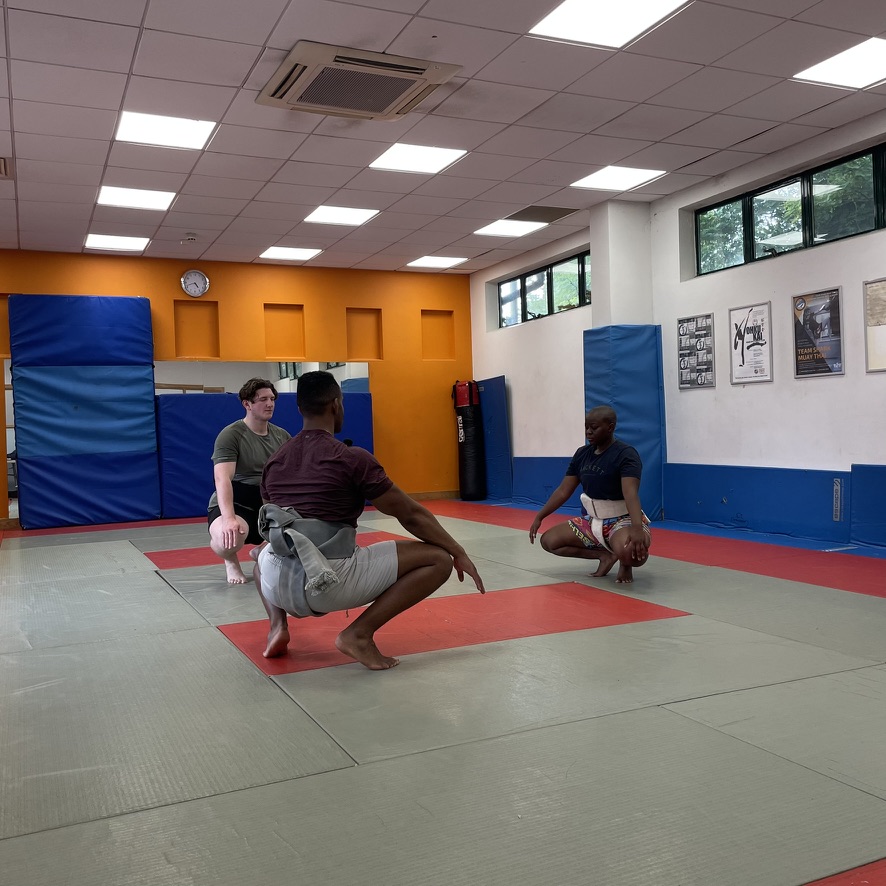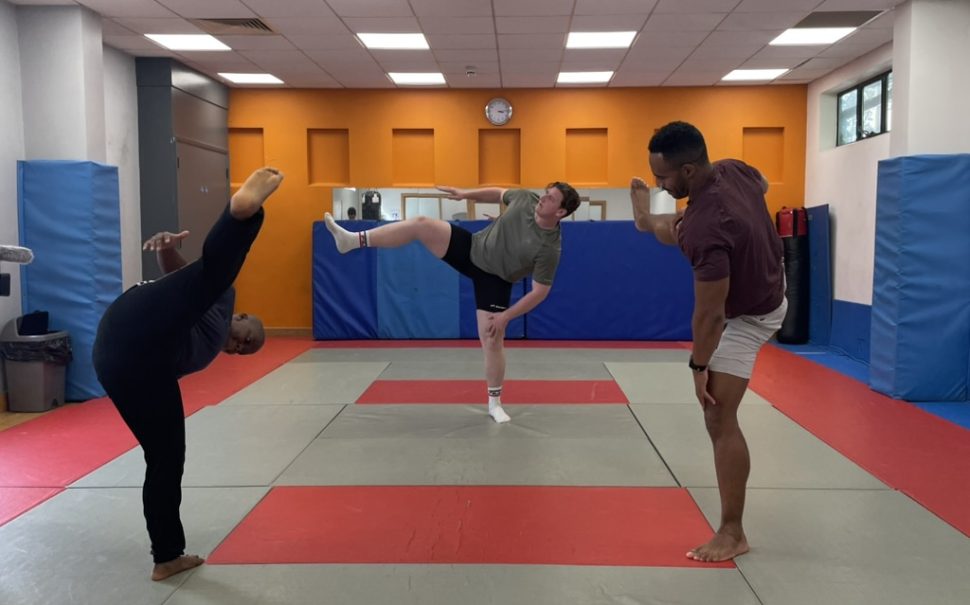The Royal Albert Hall is hosting sumo wrestling this week – to the delight of those involved in the sport in Britain…
Two wrestlers stand in opposition, weighing a combined 300kg – about 24 stone each.
Salt and sand scattered over the dohyō. One presses their fists to the ground, and the other follows as the commentator yells “hakkeyoi!”
For only the second time in 1,500 years, elite sumo has landed in the UK. The Royal Albert Hall is hosting 40 sumo wrestlers in the Grand Sumo Tournament from today to October 19.
The Tournament will reveal which sumo wrestler, or rikishi, will prevail as champion and which of the 82 winning moves will seal victory. It also raises broader questions about the popularity of sumo outside Japan.
Benita, 23, discovered sumo in 2018 while working in a sushi bar. Fascinated by Japanese food, she stumbled upon chankonabe, “sumo stew”, and was hooked.
Now a member of the London Sumo Club, she trains alongside men twice her size. “Like the Greeks have Olympians,” she says, “sumo wrestlers are the epitome of strength and poise.”
The Wandsworth-based club is two years old and was set up by Sonny Bell, who first came across sumo when he was 18. Now a three-time British Champion, he has become a key figure for British sumo.
After he got in touch with a man from Doncaster, he was invited to GB training and was competing and winning medals within a year.
Now, as British Champion, he attends European and World Championships while running the London Sumo Club and working as a camera operator.
“Your positioning, your body, your footwork, so much goes into it,” Sonny said. “It’s not just the pushing game, but for newcomers, it’s great because they are welcoming. It’s just the push at first, then you can develop your own sumo and your own style. No other sport has two bulls hitting each other.”
A voice pipes up from behind to suggest fencing, but somehow that does not convey the power that sumo holds.
With the Grand Sumo Tournament in London, those involved in UK sumo have seen much more outreach.
British Sumo president Scott Findlay said: “Sumo has been in Britain since the early nineties, but you would never know. For years, it was made as a sort of comedic act, big fat guys in nappies belly-bouncing, and instead of taking the time to educate and grow the sport, a lot of the guys leaned into that. So it became bursts of popularity, the odd good wrestler here or there, but nothing really growing.”
When Scott started, the only sumo club was in Doncaster. “It would be a couple of hundred pounds just in train tickets and overnighters, or you would sleep on cold mats. You really had to be a proper sumo fanboy to keep going back.”
In recent years, Scott’s efforts have helped take the biggest British team to the World and European Championships. They have also hosted the biggest international unaffiliated competition.
Next year, the British Isles Championship will be held in Belfast, the first time sumo has reached Ireland.
Scott said: “We are hoping that between the Royal Albert, the British Isles, and the European Championships, we can have a nice boost in popularity and properly educate people.”
At last year’s World Championships in Thailand, British Sumo noted that an IOC representative was present, a sign they hope means sumo could appear in the Olympics.
Recently, meetings of both continental and international governing bodies have focused on aligning rules and regulations. “If and when the time comes,” Scott said, “we will be ready.”
“There is nearly every country involved. You are talking Scotland, England, Ireland, Wales, Norway, Poland, Switzerland, Italy, Hungary and Bulgaria. Most European countries, most Asian countries.”

In the next two years, British Sumo is focusing on clubs, education, and female and youth participation.
Scott said: “We’re looking at opening our first female-only sumo club, and multiple clubs are in talks with local districts and schools to do demonstrations and talks. As soon as they understand that you do not have to be half-naked, it becomes a lot more open. That’s why we’re focused on getting as many clubs open as we can.”
Those who are passionate and trained enough could become coaches, while others could manage sparring clubs. “There is no bigger educator than word of mouth,” Scott said.
One of the biggest stories to come out of the UK sumo scene in recent years is Nicholas Tarasenko. This year, the 16-year-old from Hull went to Japan to train at the Minato stable, the first Brit since Nathan Strange in 1989.
Scott said: “It’s historical because only one Brit has ever gone to Japan, and he lasted six months and came home because he couldn’t handle it. I have never met a young lad with such a strong mindset as Nicholas. Nothing phases him.
“He’s six foot four, 120-something kilos, and just turned 16. Everybody was shocked because in nine months he had nearly taught himself Japanese.”
The international interest that drew Nicholas to sumo is incredibly important. “Without international fandom, it would lose a huge pillar of strength,” Scott said. “Participation in Japan has fallen flat because wrestlers there have such a comfortable life. The main reason people get into sumo is most definitely honour, respect and tradition. They are revered with a sense of grandeur.”
And as those who saw the rikishi emerging from Heathrow on Monday will agree, they still hold that same grandeur.
Scott said: “No matter your age, your weight, your physicality, or your experience in martial arts or any sport, you can be a complete blank canvas. It is easy to do, hard to master, but it is absolutely for everybody.”





